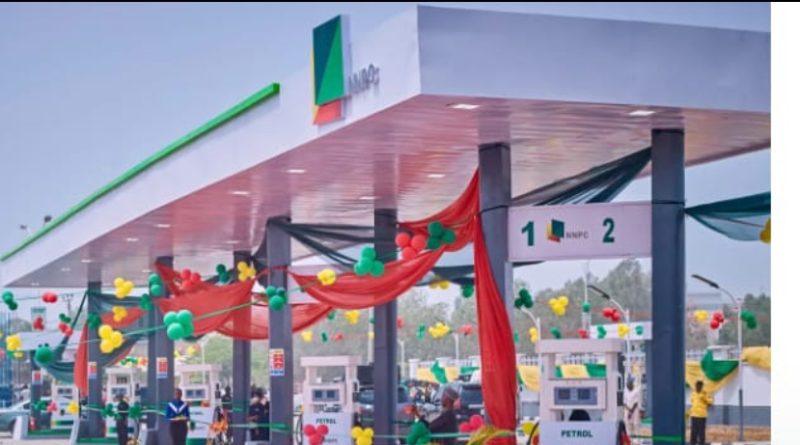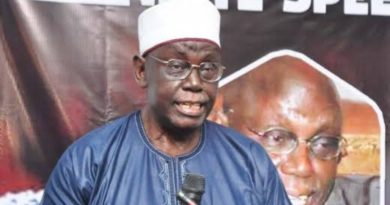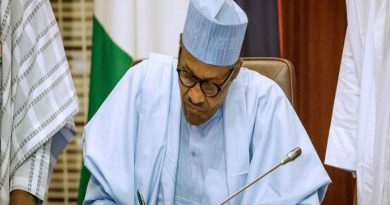UNMASKING THE TRUTH: the current vs. Ideal Pump Price of PMS (fuel) in Nigeria
Perspectives with Dr. Iyke Ezeugo
Nigeria stands at a crossroads in its fuel pricing journey, where the promise of local refining through the Dangote refinery has ignited hope for a more affordable fuel future. Currently, the pump price of Premium Motor Spirit (PMS) fluctuates alarmingly between ₦950 and ₦1,500 per litre, a stark contrast to the ideal price point of less than ₦550, which has been calculated with generous allowances for operational inefficiencies including corruption allowances and unmoderated profit margins. This disparity raises urgent questions about the mechanisms governing fuel pricing in Nigeria, particularly as the country relies on the sole off-taker, the Nigerian National Petroleum Company Limited (NNPC), for distribution from Dangote’s refinery. Another shade of monopoly in style, perhaps.
Despite the inauguration of the Dangote refinery, which is poised to reduce Nigeria’s historical dependence on imported fuels, the expected benefits have yet to materialize. NNPC’s monopoly over fuel distribution has stifled price competition, leading to inflated costs that burden the already beaten consumers and stymie economic progress. Distributors are purportedly purchasing fuel at ₦898 per litre from NNPC, a price that is ostensibly inflated compared to the refinery’s actual production costs. The implications of such a setup are troubling: potential price-fixing, corruption, and hidden taxes all serve to enrich a few at the expense of the many, effectively passing the financial burden onto the already impoverished Nigerian populace.
Globally, nations that leverage their local refining capabilities successfully sell fuel for ₦300 per litre equivalent or less, illustrating the gap in Nigeria’s pricing structure. This article seeks to unmask the truth behind the current fuel pricing conundrum in Nigeria, challenging the government, NNPC, Dangote, and the public to demand transparency and accountability in fuel pricing. By exploring the complex web of factors that inflate PMS prices in Nigeria and contrasting them with practices from other oil-producing countries, we will uncover a roadmap toward a fairer, more equitable fuel pricing system that aligns with the economic realities faced by Nigerians today. As we delve deeper, we must ask: Why should Nigerians continue to suffer the weight of exorbitant fuel prices when a just solution is within reach?
Pre-Dangote Refinery: The Breakdown of PMS Pricing Elements
Prior to the Dangote refinery coming online, Nigeria relied heavily on the importation of refined PMS, leading to a variety of cost factors. These cost elements, as outlined by industry regulators like the Petroleum Products Pricing Regulatory Agency (PPPRA) and stakeholders such as NNPC Retail, included:
1. Landing Cost: The most significant cost driver, landing costs include the price of crude oil, freight, and associated expenses like insurance and demurrage. According to data from the PPPRA, the landing cost of PMS in 2022 averaged ₦1,120 per litre.
2. Freight Cost: Shipping crude oil to Nigeria’s refineries (or shipping refined products for direct consumption) represents a significant portion of the cost. Data from the NNPC Group shows fluctuations in freight costs based on market volatility, often influenced by global oil prices and shipping logistics.
3. Lightering and Depot Charges: Because Nigeria’s ports cannot accommodate large tankers, crude must be offloaded onto smaller vessels—a process known as lightering. Depot charges cover handling at jetties and are levied by operators such as the Nigerian Ports Authority (NPA) and Nigerian Midstream and Downstream Petroleum Regulatory Authority (NMDPRA).
4. Storage and Distribution Costs: Once PMS lands in Nigeria, it incurs storage costs at depots, transportation expenses to various parts of the country, and retail distribution costs. These components are overseen by industry operators like Major Oil Marketers Association of Nigeria (MOMAN) and Depot and Petroleum Products Marketers Association of Nigeria (DAPPMAN).
5. NPA and NIMASA Charges: The Nigerian Ports Authority (NPA) and Nigerian Maritime Administration and Safety Agency (NIMASA) levy charges related to port usage, which impact the overall price of PMS.
6. Marketing and Profit Margins: The final component of PMS pricing involves the profit margins added by marketers and retailers, typically ranging from ₦50 to ₦100 per litre, as per data from MOMAN.
Post-Dangote Refinery: Eliminating Import-Related Costs
The local refining of PMS at the Dangote refinery eliminates many of the cost elements associated with importation which include:
– Freight Costs: With crude oil being refined locally, the cost of shipping crude or refined products is eliminated. According to the *NNPC Group*, these costs can range from ₦200 to ₦300 per litre, depending on global shipping rates.
– Lightering and Jetty Charges: Domestic refining eliminates the need for lightering and reduces jetty handling fees.
– NPA and NIMASA Charges: Local refining drastically reduces port-related charges since there are fewer imported products passing through Nigerian ports.
These reductions imply that local refining should lead to a lower PMS price, assuming other cost elements like crude oil pricing and distribution remain stable.
Ideal Pump Price of PMS in the Post-Dangote Era
Under a competitive and transparent pricing model, the ideal price of PMS in Nigeria should reflect the actual cost of local refining and distribution, without inflated margins or inefficiencies. Based on data from the NMDPRA and NNPCL:
– Cost of Crude Oil: The raw cost of crude oil on international markets (converted at the current exchange rate) is approximately ₦216 per litre.
– Refining, Storage, and Distribution: After accounting for refining and domestic distribution costs, as projected by *Dangote Refinery Ltd.*, the additional cost per litre is estimated to be between ₦334 and ₦534, covering storage, marketing, and margins for retailers.
– Total Estimated Price: In a worst case scenario, the overall ideal pump price of PMS in the post-Dangote era should range between ₦550 and ₦750 per litre, assuming stable crude prices and controlled local production costs.
The Role of the Exchange Rate
The exchange rate between the naira and the US dollar significantly impacts PMS pricing. As long as Nigeria buys or sells crude oil in dollars to Dangote, any depreciation of the naira results in higher costs for oil marketers and importers. The good news is that we heard it’s been agreed that crude oil will be sold in Naira to Dangote and Dangote will sell refined products to NNPC and any other in Naira. But, whether the impact of this is evident on the current fuel pricing is a different story. For instance, the Central Bank of Nigeria (CBN) has reported that the naira depreciated from ₦160/$1 in 2014 to ₦411/$1 by 2021, significantly increasing the landing cost of PMS.
Although the Dangote refinery will reduce the need for imports, it appears the crude oil feedstock still ties Nigeria’s energy prices to international exchange rates. Thus, stabilizing the naira will remain critical to managing PMS costs. However, how can we stablize the Naira when we keep diving deeper into foreign debts whose repayment requirements consumed more than 90% of the country’s revenue.
Global Comparisons: How Oil-Producing Nations Manage Fuel Prices
Oil-rich nations such as Saudi Arabia and Kuwait benefit from robust local refining capacities and lower fuel prices. In Saudi Arabia, PMS is sold for as low as ₦250 per liter, thanks to strong government policies and subsidies, per Saudi Aramco’s annual reports. Kuwait similarly offers heavily subsidized fuel, with prices between ₦200 and ₦300 per liter.
Nigeria, while a major crude oil producer, lags behind in refining capacity and has long been dependent on imports. This disparity is one of the primary reasons why fuel prices in Nigeria have historically been higher than in other oil-producing nations.
Economic Impact of PMS Pricing on Sectors
Rising PMS prices affect multiple sectors; but this is direct and more in transportation, which relies heavily on affordable fuel and also have a ripple over effects in all other sectors. The National Bureau of Statistics (NBS) reports that an increase in PMS prices contributes to inflation in essential commodities, including food. High transportation costs also drive up production expenses for industries such as agriculture and manufacturing.
Charting a Sustainable Path for PMS Pricing
To stabilize PMS pricing in Nigeria and ensure long-term economic benefits, it is crucial for the government to create a robust policy framework that promotes transparency and competition within the fuel sector. Phasing out subsidies responsibly, strengthening the naira, and maximizing local refining capacities will be key to lowering fuel prices and reducing inflationary pressures on the economy. The Dangote refinery presents a unique opportunity to achieve these goals, but only with strategic economic and regulatory actions can Nigeria fully harness the potential benefits.
References
1. Petroleum Products Pricing Regulatory Agency (PPPRA). “PMS Pricing Template Overview.” Retrieved from [official PPPRA site].
2. Nigerian National Petroleum Corporation (NNPC). “Petroleum Products Pricing and Distribution Data.” Retrieved from [official NNPC pricing bulletin].
3. Nigerian Midstream and Downstream Petroleum Regulatory Authority (NMDPRA). “Cost Structure and Pricing Regulations for Petroleum Products.” Retrieved from [NMDPRA pricing framework].
4. Major Oil Marketers Association of Nigeria (MOMAN). “Breakdown of PMS Pricing in Nigeria.” Retrieved from [MOMAN’s official report on PMS costs].
5. Central Bank of Nigeria (CBN). “Foreign Exchange Rates and Impacts on Oil Pricing.” Retrieved from [CBN’s official exchange rate analysis].
This updated version focuses on referencing industry players and regulatory bodies directly involved in determining the cost of PMS in Nigeria. If you need specific links to these regulatory reports, I can help generate more specific citations depending on available documents from their official sources.
Dr. Iyke Ezeugo is a Forensic Researcher, a Social Impact Expert, and Satirist who uses his perspectives and parodies to challenge the status quo, spark debates, and inspire fresh perspectives on public affairs through insightful intellectual injections.




